G20 Summit
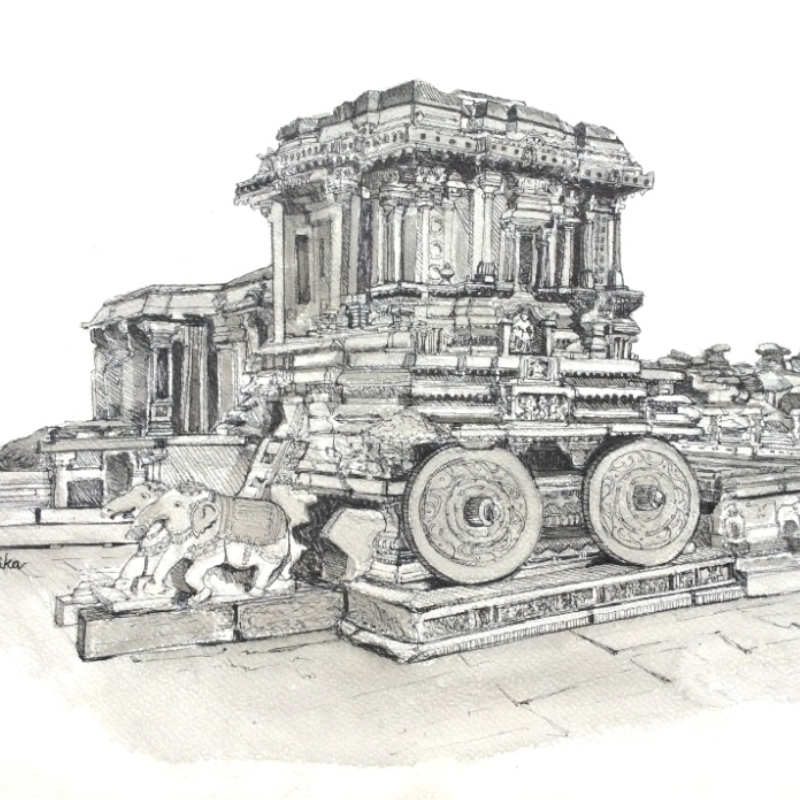
Hampi is a cultural and architectural heritage site built more than 200 years ago. The site was constructed between 1336 AD to 1565 AD. This location is famous for its temples, palaces, market streets and monuments, making up the Vijayanagara Empire.

The iconic India Gate, an arch gate made using sandstone, is a war memorial situated in the Rajpath area, Delhi. It was built to commemorate the Undivided British Army (also known as British India Army) soldiers who laid down their lives during the First World War and the Third Anglo-Afghan War of 1919.
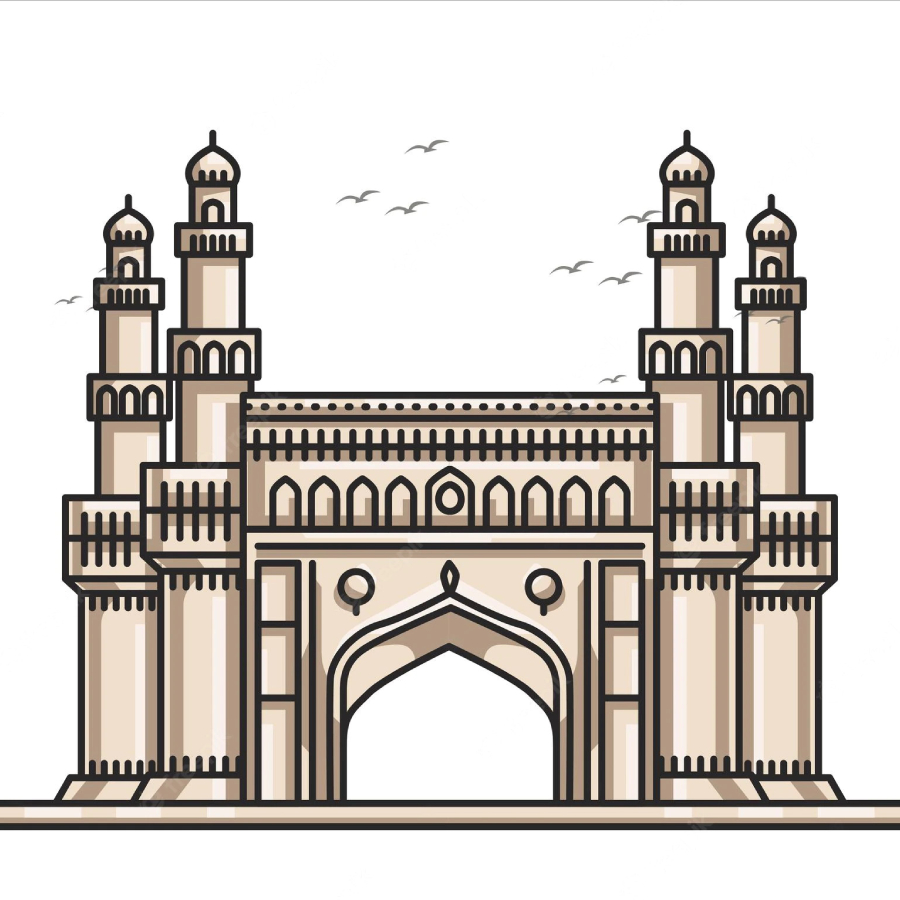
Charminar was built by Sultan Mohammed Quli Qutb Shah in 1591. It is said that this square shaped structure with four pillars and intricate carvings was built in honour of his wife, Bhagmati.
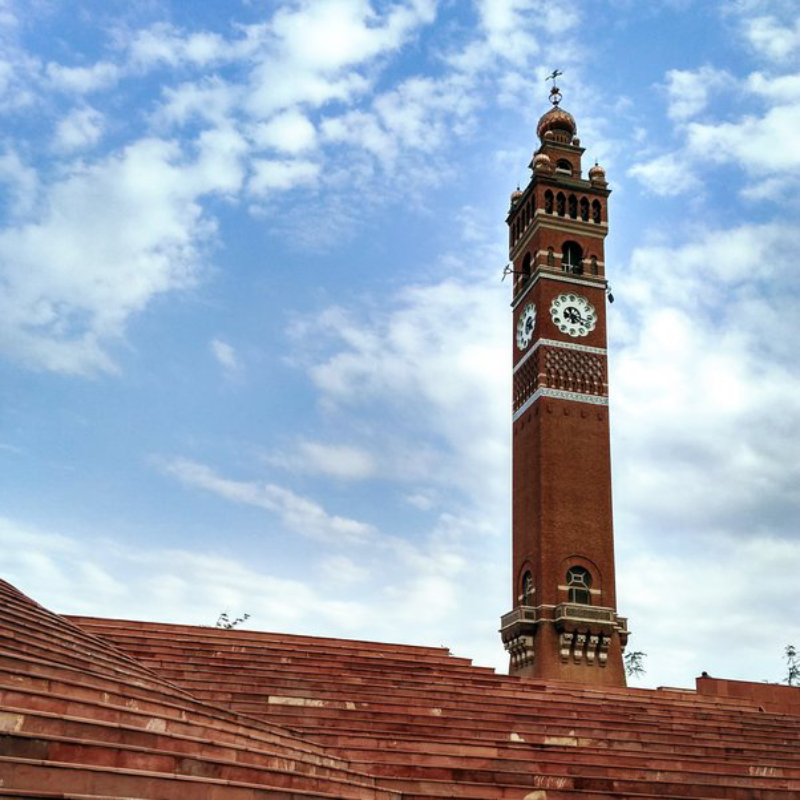
Husainabad Clock Tower is a clock tower located in the Lucknow city of India. It was constructed in 1881 by Hussainabad Trust to mark the arrival of Sir George Couper, the first lieutenant governor of the United Province of Avadh. It was built at a cost of Rs. 1.75 lakhs.
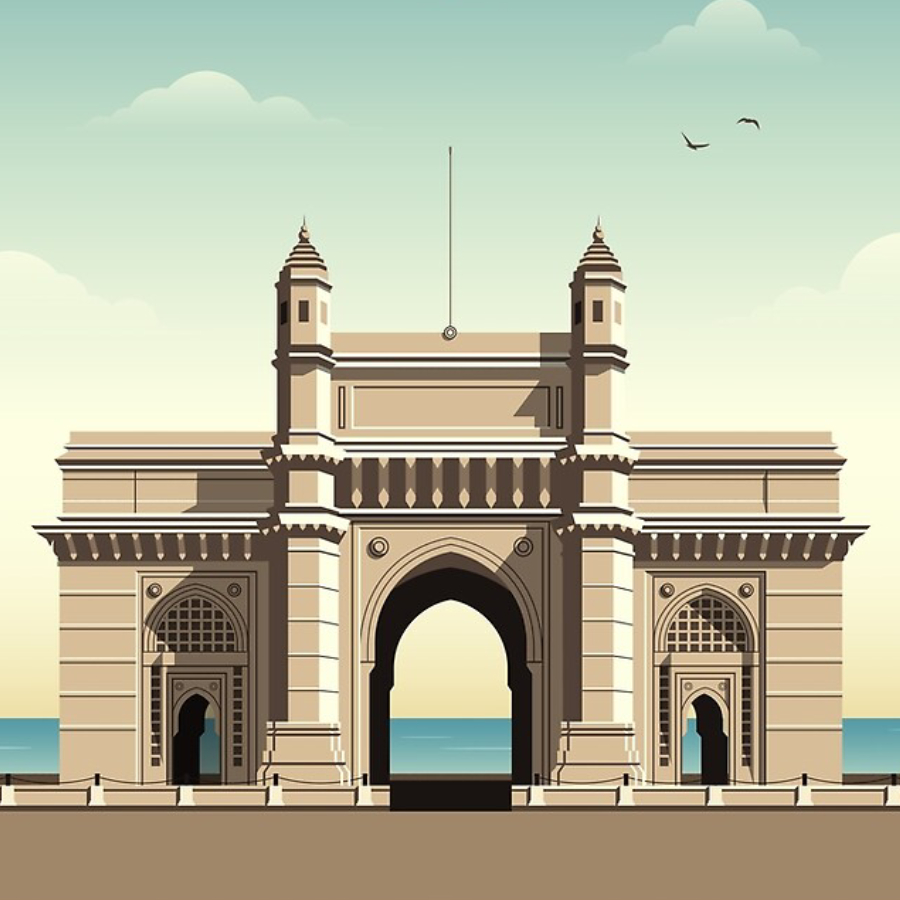
The structure is an arch made of basalt, 26 metres (85 feet) high. The final design of George Wittet was sanctioned in 1914 and the construction of the monument was completed in 1924. The Gateway was later used as a symbolic ceremonial entrance to India for Viceroys and the new Governors of Bombay.

The Taj Mahal is an ivory-white marble mausoleum on the south bank of the Yamuna river in the Indian city of Agra. It was commissioned in 1632 by the Mughal emperor, Shah Jahan (reigned from 1628 to 1658), to house the tomb of his favourite wife, Mumtaz Mahal.
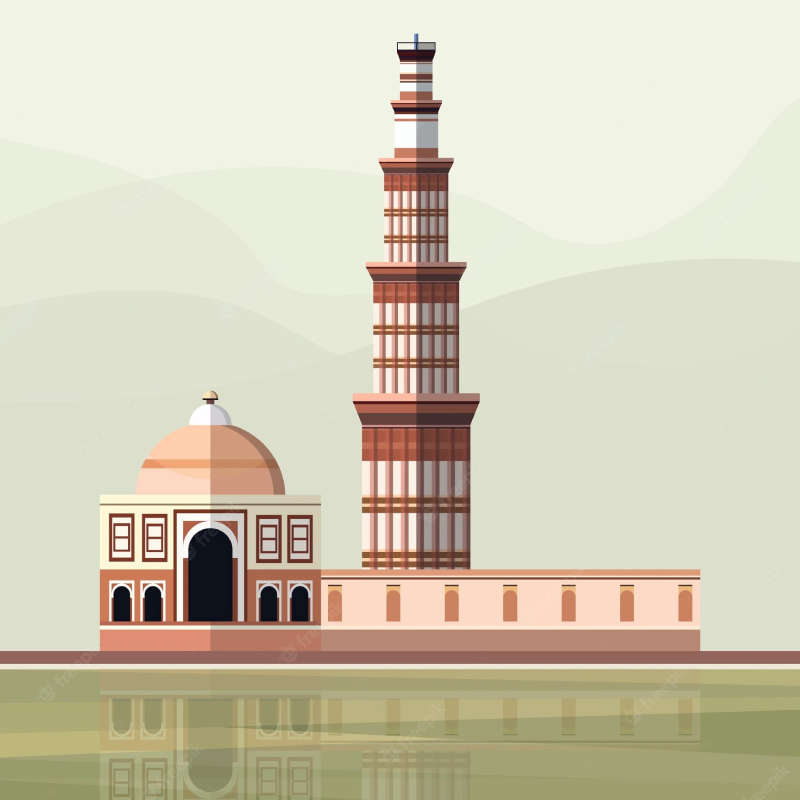
It is the earliest extant mosque built by the Delhi Sultans. It consists of a rectangular courtyard enclosed by cloisters, erected with the carved columns and architectural members of 27 Hindu and Jaina temples which were demolished by Qutbu'd-Din Aibak as recorded in his inscription on the main eastern entrance.